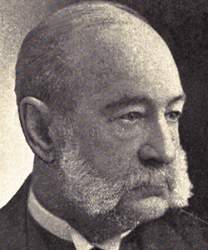Record Data
Transcription
[Horace] Greeley, at that time, was a pariah among the delegates. On the Sunday morning before the convention I met him in Clark Street, coming from the Lake Shore Depot en route to the Tremont House, nearly a mile away, lugging a huge leather satchel, which he would change from one hand to the other every little while. There were but few people on the street at the time, but he would look into the faces of all whom he met with an air of bucolic simplicity. He was snubbed in the convention, as he really represented no constituency. There were but few Republicans in Democratic Oregon, and his sole weight in the convention was that of one vote. The New York delegates hardly knew him personally.
Nearly the entire delegation from Indiana came there with the specific design of securing control of the fat Interior Department in case of Republican success. They had agreed on a secretary of that department – Caleb B. Smith ; a Commissioner of Indian Affairs, William P. Dole, formerly of Indiana ; and on candidates for some of the minor offices. They then opened their political huckster shop and spread out their votes for inspection. As there was close intercommunication between Illinois and Indiana, and Lincoln had served in Congress with Smith, it was quite natural that they should give Illinois their support. The bargain was very soon made. Caleb B. Smith was to be Secretary of the Interior, Dole Commissioner of Indian Affairs ; and the vote of Indiana was to be solid for Lincoln. He, therefore, started in with the votes of Indiana and Illinois.
The next block of votes that was lying around loose was the Cameron strength in Pennsylvania. This was more difficult to manage. Not having yet been made acquainted with Lincoln's ethical tendencies, Davis got Dubois to telegraph to Lincoln that they could secure the Cameron delegates from Pennsylvania if they might promise Cameron the Treasury. Lincoln replied : "I authorize no bargains and will be bound by none." Just ten words - the normal length of a telegraphic message! Not satisfied with this, however, he sent a copy of the Missouri Democrat to Herndon with three extracts from Seward's speeches marked ; and on the margin of which he had written : "I agree with Seward's 'irrepressible conflict,' but do not agree with his 'higher law' doctrine." And he added, "Make no contracts that will bind me."
Everybody was mad, of course. Here were men working night and day to place him on the highest mountain peak of fame, and he pulling back all he knew how. What was to be done? The bluff Dubois said : "Damn Lincoln !" The polished Swett said, in mellifluous accents : "I am very sure if Lincoln was aware of the necessities ------" The critical Logan expectorated viciously, and said : "The main difficulty with Lincoln is -----" Herndon ventured : "Now, friend, I'll answer that." But Davis cut the Gordian knot by brushing all aside with : "Lincoln ain't here, and don't know what we have to meet, so we will go ahead, as if we hadn't heard from him, and he must ratify it. The Cameron contingent was secured for Lincoln on the second vote.










